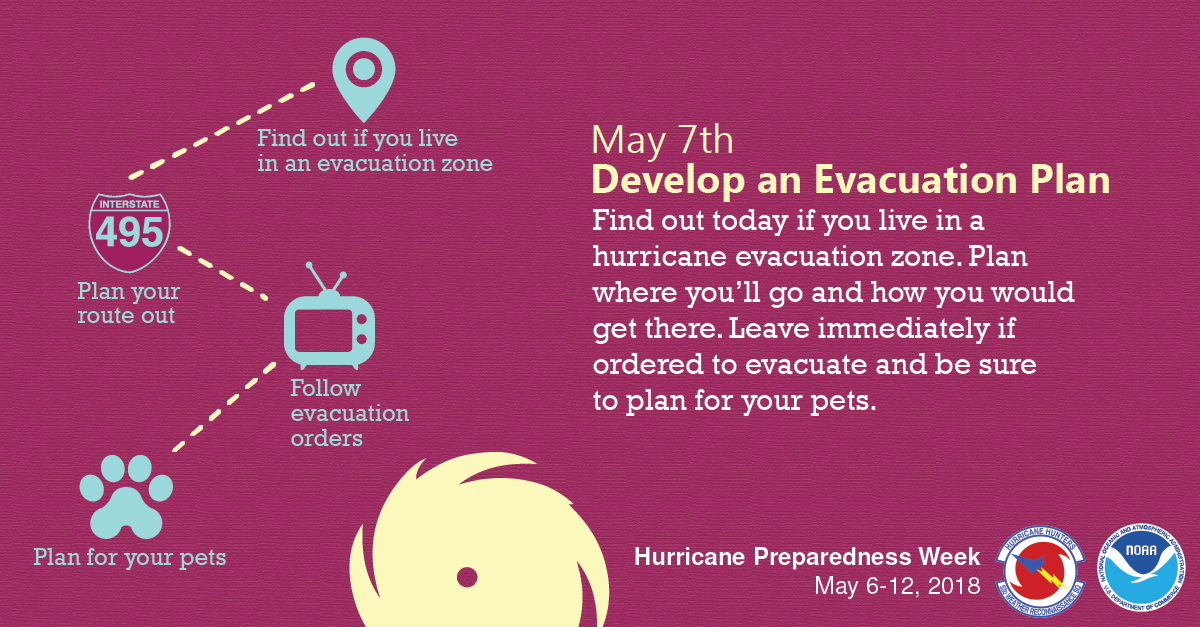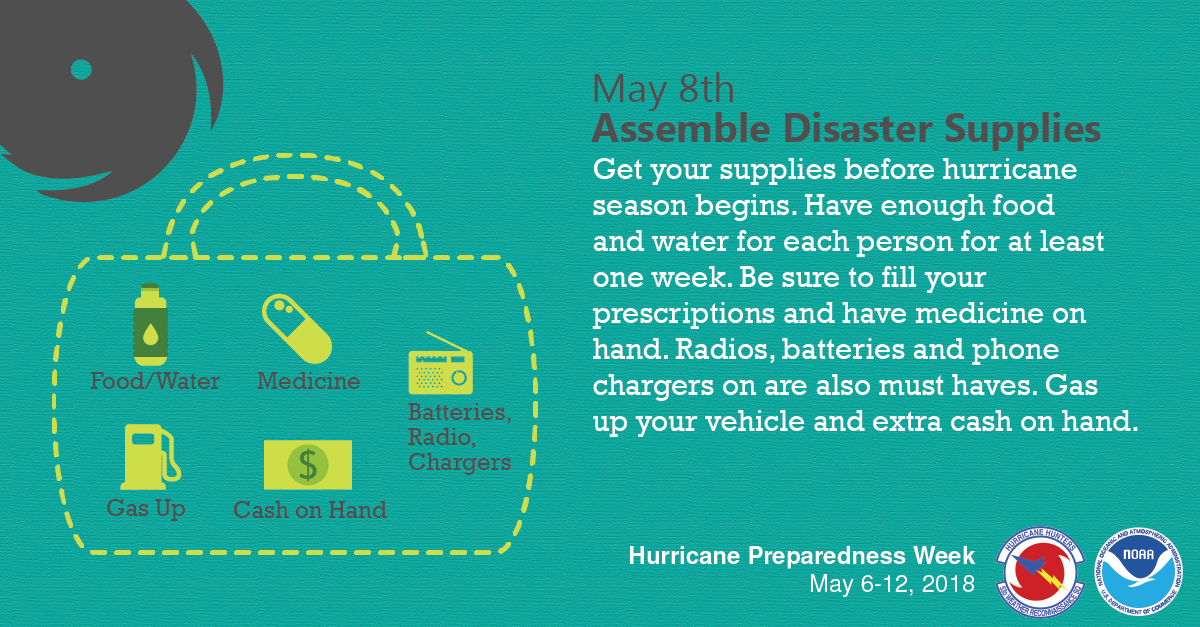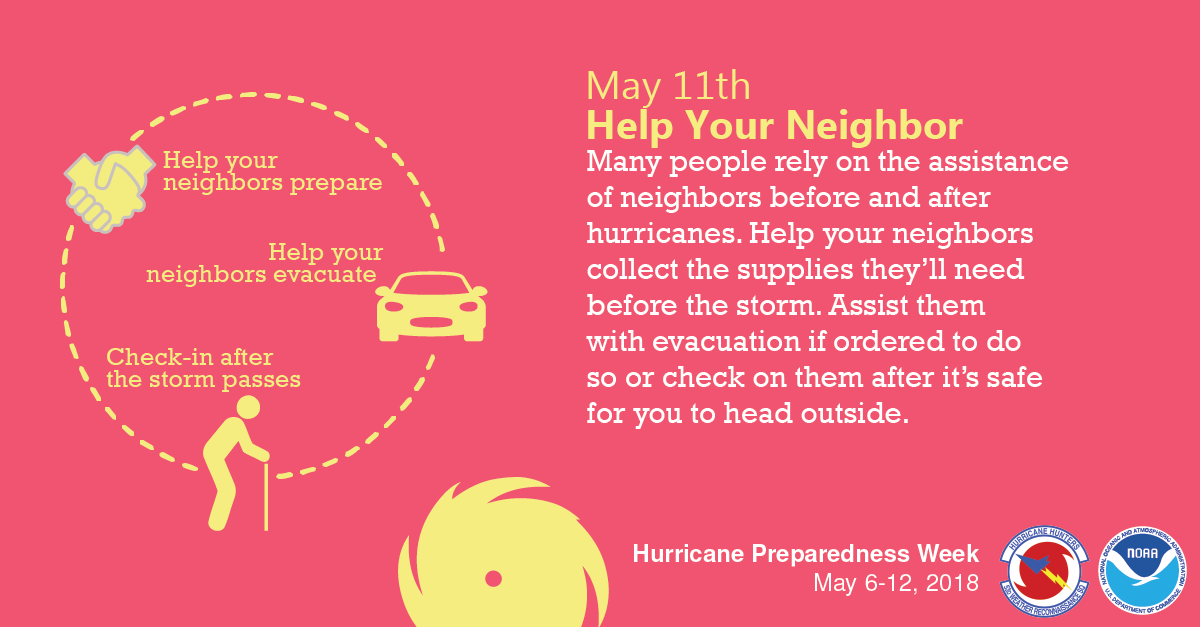RECENT NEWS & ANNOUNCEMENTS
May 13–19, 2018
 It's never too early or late to work toward being your healthiest you! This National Women's Health Week, we want to help you take control of your health.
It's never too early or late to work toward being your healthiest you! This National Women's Health Week, we want to help you take control of your health.Services include:
· Blood pressure and weight evaluation
· Breast and Pelvic Exam, Pap Smear Screening and Referral, if needed
· Breast Self Exam Instruction and Counseling
· Screening, Diagnosis, Treatment and/ or referral for Vaginal Infections, STDs (including HIV)
· Routine Laboratory Testing
· Mammogram Referral
· Pregnancy Testing
· Referral for Perinatal and other Case Management Services
Available Birth Control Methods, including Long-Acting Reversible Contraceptives (LARCs):
· Condoms
· Depo-Provera
· IUD
· Natural Family Planning/Fertility Awareness
· The “Pill”
· The “Patch”
· Referral for Tubal Ligation (Female Sterilization)
· Referral for Vasectomy (Male Sterilization)
· Referral for Emergency Contraception (Plan B)
· Abstinence Counseling
May 9th is National School Nurse Day!
 From handling scraped knees to heartaches and all points in between, local school nurses provide students with much more than just traditional nursing care every day.
From handling scraped knees to heartaches and all points in between, local school nurses provide students with much more than just traditional nursing care every day.
“Mom, social worker, counselor and healthcare provider, put that all together, and you’ve got a school nurse,” said Tammy Keen, MSN, RN, school nurse at Dalton High School. “And no two days are ever the same.”
Renee Smith, RN, supervisor of the school nurse program at Whitfield County Schools, confirmed there is no typical day for a school nurse.
“Every day is different,” Smith said. “Some days you’re giving education to students who come into the clinic with complaints of tummy aches or sore throats or headaches. Other days you see a lot of worried, well students or kids who just want to skip class – those are the easy days.”
Then there are the days when it seems a school nurse is running a “mini-ER”, handling crises that range from serious asthma attacks to dangerous diabetic high blood sugar levels or playground injuries that could involve lacerations or broken bones.
For Traci Hopkins, BSN, RN, supervisor of the school nurse program at Dalton Public Schools and school nurse for Morris Innovative School, a typical day could include anxiety attacks, depression, eating disorders and pregnancies.
“We try to deal with the whole student,” said Hopkins. “We want to support them in staying in school by doing things such as assessing their health condition and helping them get affordable care at our health department and dental clinic, and we help young, new mothers learn how to breastfeed and arrange for child care so they can concentrate on successfully graduating from school.”
 Whitfield County Schools and Dalton Public Schools contract school nurses through the Whitfield County Health Department, which is a unique arrangement in the state of Georgia, since most schools contract nurses through hospitals.
Whitfield County Schools and Dalton Public Schools contract school nurses through the Whitfield County Health Department, which is a unique arrangement in the state of Georgia, since most schools contract nurses through hospitals.
According to Smith, five school nurses serve 13 elementary schools in the county schools, with four of the nurses operating part time in three schools each. Smith serves as a part-time nurse in one school, while supervising the Whitfield County Schools school nurse program. In Whitfield County Schools, each elementary school has a part-time school nurse.
Hopkins said all nine schools in the Dalton Public Schools system have full-time school nurses.
School nurses administer medications and provide hearing, vision and dental screening. They conduct CPR training and educate on healthy lifestyles at health fairs and through one-on-one education with students and parents. School nurses speak individually with students about the impact of risky behaviors such as unprotected sex, tobacco and drug use, and provide referrals, as indicated. School nurses deal with lice, bed bugs and disease outbreaks.
Since school nurses in the two local school systems are public health nurses, they are also able to provide scoliosis screening in the schools. This includes all middle schools throughout the county.
 Keen is grateful the local school nurses program is operated through the county health department.
Keen is grateful the local school nurses program is operated through the county health department.
“Because the program is conducted under public health,” said Keen, “I can look up immunization records. I just looked up one the other day for a student going off to college. I can also pick up the phone and call the nurse practitioner and express concerns about a student’s health and we can work together to provide the care that is needed.
“Many kids in Dalton Public Schools and Whitfield County Schools do not have access to health or dental care. We are their first line of health care. We can assess when the child needs medical or dental care and refer them to the health department, where they usually can be seen the same  day.”
day.”
With the school nurse program under one umbrella in Whitfield County, the nurses are better able to follow through with the students so that if there are health issues that may be acute, they can keep an eye on issues like skin infections or sports-related injuries and make sure students are taking any required medications.
By maintaining relationships with students throughout the school year, especially with children who have chronic conditions such as asthma, diabetes or seizures, these school nurses can work with school staff on educational planning for that child.
“It is a great opportunity to be an advocate for these kids and look at them in a way that nobody else does,” Keen said. “We see the kids through different eyes, so we are an integral part of the academic team, along with teachers, social workers, and counselors – and there we are, all of us working together, helping to support these children in a way that will not only help them be academically successful but successful in life.”
Keen feels it was providential that her years of working with children, adolescents and parents as a nurse practitioner and as a pediatric intensive care clinical nurse specialist, along with her education in nursing, helped prepare her to become a school nurse.
![]() “God was preparing me for this moment and it’s made me a better school nurse,” said Keen. “I’ve had everything from research experience to intensive care training and I’ve worked with adolescents; plus, my nurse practitioner experience has helped me assess the health of children. And, of course, as the mother of teenagers, I’ve had personal experience in dealing with kids!”
“God was preparing me for this moment and it’s made me a better school nurse,” said Keen. “I’ve had everything from research experience to intensive care training and I’ve worked with adolescents; plus, my nurse practitioner experience has helped me assess the health of children. And, of course, as the mother of teenagers, I’ve had personal experience in dealing with kids!”
Steve Bartoo, principal of Dalton High School, said, “Having a full-time school nurse is a great value for our school. Nurse Keen works tirelessly to help develop and support a culture that promotes health and wellness. Not only does Nurse Keen provide a needed service, she has established great relationships with our kids and faculty. There is no doubt in my mind that having a school nurse is a tremendous asset for any school.”
We are helping the NWS spread the word about Hurricane Preparedness Week (May 6-12, 2018) on social media!
Everyone is welcome to use the text and images provided below to help the NWS build a Weather-Ready Nation.
Sunday, May 6th
Facebook
Hurricanes are not just a coastal problem. Their impacts can be felt hundreds of miles inland, and significant impacts can occur without it being a major hurricane. Hurricane Preparedness Week (May 6-12, 2018) is your time to prepare for a potential land-falling tropical storm or hurricane.
http://weather.gov/hurricanesafety
Twitter
Hurricane Preparedness Week (May 6-12, 2018) is your time to prepare for a hurricane.
http://weather.gov/hurricanesafety #HurricanePrep #HurricaneStrong
Monday, May 7th
Facebook
During Hurricane Preparedness Week, make sure you have a hurricane evacuation plan. The first thing you need to do is find out if you live in a storm surge hurricane evacuation zone or if you’re in a home that would be unsafe during a hurricane. If you are, figure out where you’d go and how you’d get there if told to evacuate. You do not need to travel hundreds of miles. Identify someone, perhaps a friend or relative who doesn’t live in an evacuation zone or unsafe home, and coordinate with them to use their home as your evacuation destination. Be sure to account for your pets, as most local shelters do not permit them. Put the plan in writing for you and those you care about.
http://flash.org/hurricane-season/evacuation-zones/find-your-evacuation-zones.pdf
Twitter
Are you in a hurricane evacuation zone?
http://flash.org/hurricane-season/evacuation-zones/find-your-evacuation-zones.pdf #HurricanePrep #HurricaneStrong
Tuesday, May 8th
Facebook
If a hurricane strikes, you’re going to need supplies not just to get through the storm but for the potentially lengthy recovery period that could follow. Have enough non-perishable food, water and medicine to last each person in your family a minimum of one week. Electricity and water could be out for at least that long. You’ll need extra cash, a battery-powered radio and flashlights. You’ll also need a portable crank or solar powered USB charger to charge your cell phone.
Twitter
What should be in your hurricane kit? https://www.ready.gov/kit #HurricanePrep #HurricaneStrong
Wednesday, May 9th
Facebook
This Hurricane Preparedness Week, call your insurance company or agent and ask for an insurance checkup to make sure you have enough homeowners insurance to repair or even replace your home. Don’t forget coverage for your car or boat. Remember, standard homeowners insurance doesn’t cover flooding. Whether you’re a homeowner or renter, you’ll need a separate policy for flooding. It’s available through your company, agent or use the agent locator at www.floodsmart.gov. Act now as flood insurance requires a 30-day waiting period.
https://www.fema.gov/what-mitigation
Twitter
Are you insured for a hurricane? Find coverage at www.floodsmart.gov #HurricanePrep #HurricaneStrong
Thursday, May 10th
Facebook
If you plan to ride out a hurricane in your home, make sure it is in good repair and up to local hurricane building code specifications. Have the proper plywood, steel or aluminum panels to board up the windows and doors. Remember, the garage door is the most vulnerable part of the home, so it must be able to withstand high winds.
https://www.fema.gov/what-mitigation
Twitter
Can your home withstand a hurricane? https://www.fema.gov/what-mitigation #HurricanePrep #HurricaneStrong
Friday, May 11th
Facebook
Many Americans rely on their neighbors after a disaster, but there are also many ways you can help your neighbors before a hurricane approaches. Learn about all the different actions you and your neighbors can take to prepare and recover from the hazards associated with hurricanes: https://community.fema.gov/action/plan-with-neighbors
Twitter
You can play a large role in how your neighbors fare before, during and after a hurricane. https://community.fema.gov/action/plan-with-neighbors #HurricanePrep #HurricaneStrong
Saturday, May 12th
Facebook
The time to prepare for a hurricane is before the season begins, when you have the time and are not under pressure. If you wait until a hurricane is on your doorstep, the odds are that you will be under duress and will make the wrong decisions. Take the time now to write down your hurricane plan. Know where you will ride out the storm and get your supplies now. You don’t want to be standing in long lines when a Hurricane Watch is issued. Those supplies that you need will probably be sold out by the time you reach the front of the line. Being prepared, before a hurricane threatens, makes you resilient to the hurricane impacts of wind and water. It will mean the difference between your being a hurricane victim and a hurricane survivor.
https://www.ready.gov/make-a-plan
Twitter
Make a plan - before hurricane season begins. https://www.ready.gov/make-a-plan #HurricanePrep #HurricaneStrong
Videos
Facebook
Learn the dangers of a hurricane storm surge with this fast draw video. Storm surge is what officials use when determining who to evacuate. Remember, when officials say it is time to evacuate... go! http://youtu.be/bBa9bVYKLP0
Twitter
Storm surge is dangerous! Remember, when officials say it is time to evacuate... go! https://youtu.be/bBa9bVYKLP0 #HurricanePrep #HurricaneStrong
Hurricanes.gov/prepare
Facebook
Facebook It only takes one storm to change your life and community. Tropical cyclones are among nature’s most powerful and destructive phenomena. If you live in an area prone to tropical cyclones, you need to be prepared. Learn how during Hurricane Preparedness Week (May 6-12, 2018). http://hurricanes.gov/prepare
Twitter
Hurricane Preparedness Week (May 6-12) is your time to prepare for hurricanes. http://hurricanes.gov/prepare #HurricanePrep #HurricaneStrong
Facebook
Hurricane Preparedness Week (May 6-12, 2018) is your time to prepare for a potential land-falling tropical storm or hurricane. Learn how with daily tips and related links. Share these with your friends and family to ensure that they're prepared. http://hurricanes.gov/prepare
Learn how to prepare for hurricanes with daily tips and more. http://hurricanes.gov/prepare #HurricanePrep #HurricaneStrong
weather.gov/hurricanesafety
Facebook
Remember, it only takes one storm to change your life and community. For more information on hurricanes and hurricane safety, visit weather.gov/hurricanesafety
Twitter
It only takes one storm to change your life & community! Prepare! weather.gov/hurricanesafety #HurricaneSafety #ItOnlyTakesOne
From the Centers for Disease Control and Prevention (CDC)

 The CDC launched the “Clean Hands Count” campaign in 2016 to urge healthcare professionals, patients, and patients’ loved ones to prevent healthcare-associated infections by keeping their hands clean.
The CDC launched the “Clean Hands Count” campaign in 2016 to urge healthcare professionals, patients, and patients’ loved ones to prevent healthcare-associated infections by keeping their hands clean.
Although hand contact is known to be a major way germs spread in medical facilities, studies show that some healthcare professionals don’t follow CDC hand hygiene recommendations. On average, healthcare professionals clean their hands less than half of the times they should.
“Patients depend on their medical team to help them get well, and the first step is making sure healthcare professionals aren’t exposing them to new infections,” said CDC Director Tom Frieden, M.D., M.P.H. “Clean hands really do count and in some cases can be a matter of life and death.”
Part of the new campaign promotes healthcare provider adherence to CDC hand hygiene recommendations by addressing some of the myths and misperceptions about hand hygiene. For example, some people wrongly believe that using alcohol-based hand sanitizer contributes to antibiotic resistance and that it is more damaging to hands than washing with soap and water. Alcohol-based hand sanitizer kills germs quickly and in a different way than antibiotics, so it does not cause antibiotic resistance, and it causes less skin irritation than frequent use of soap and water.
The initiative also encourages patients and their loved ones to ask their healthcare team to clean their hands if they don’t see them do so before providing care.
“We know that patients can feel hesitant to speak up, but they are important members of the health care team and should expect clean hands from providers,” said Arjun Srinivasan, M.D., CDC’s associate director for healthcare-associated infection prevention programs. “We know that healthcare providers want the best for their patients, so we want to remind them that the simple step of cleaning their hands protects their patients.”
An estimated 722,000 healthcare-associated infections occur each year in U.S. hospitals, and about 75,000 patients with these infections die during their hospital stays. Healthcare providers should follow good hand hygiene practices, such as cleaning their hands before and after every patient contact. CDC’s new campaign uses dramatic images and messages to catch doctors’ and nurses’ attention, dispel myths about hand hygiene, and empower patients to advocate for clean hands.
For more information and examples of campaign materials visit: www.cdc.gov/handhygiene.
From the Centers for Disease Control and Prevention (CDC)
5 Surprising Facts About High Blood Pressure
 What you don’t know about high blood pressure could hurt you. High blood pressure affects one in three Americans,1 yet many people with the condition don’t know they have it.
What you don’t know about high blood pressure could hurt you. High blood pressure affects one in three Americans,1 yet many people with the condition don’t know they have it.
Uncontrolled high blood pressure raises the risk for heart disease and stroke, which are leading causes of death in the United States. Fortunately, high blood pressure is treatable and preventable. To lower your risk, get your blood pressure checked regularly and take action to control your blood pressure if it is too high.
Contact your local Public Health Department in Cherokee, Fannin, Gilmer, Murray, Pickens or Whitfield County for blood pressure screening and high blood pressure prevention information.... click on the above LOCATIONS tab to find them!
1. High blood pressure may be linked to dementia.
Recent studies show that high blood pressure is linked to a higher risk for dementia, a loss of cognitive function.2 Timing seems to matter: Some evidence suggests having uncontrolled high blood pressure during midlife (age 45 to 65) creates a higher risk for dementia later in life.3 The takeaway? It’s never too early to start thinking about your blood pressure and taking steps to manage it.
Mind Your Risks, a campaign from the National Institute of Neurological Disorders and Stroke, is educating people about the importance of controlling high blood pressure in midlife.
2. Young people can have high blood pressure, too.
High blood pressure doesn’t just happen to older adults. About one in four men and nearly one in five women age 35 to 44 has high blood pressure.4
High blood pressure is a leading cause of stroke, a condition that is on the rise among younger people. Experts think the increased risk for stroke among young adults is a direct result of the rising rates of obesity, high blood pressure, and diabetes—conditions that are preventable and treatable.
Younger people should get their blood pressure checked at least once each year. You can get your blood pressure checked at a doctor’s office, a pharmacy, or at many grocery stores.

Many people with high blood pressure don’t even know they have it. The only way to know is to check your blood pressure regularly.
3. High blood pressure usually doesn’t have any symptoms.
High blood pressure is sometimes called the “silent killer.” Most people with high blood pressure don’t have any symptoms, such as sweating or headaches. Because many people feel fine, they don’t think they need to get their blood pressure checked. Even if you feel normal, your health may be at risk. Talk to your doctor about your risk for high blood pressure.
4. Many people who have high blood pressure don’t know it.
About 11 million U.S. adults with high blood pressure aren’t even aware they have it and are not receiving treatment to control their blood pressure.1Most people with uncontrolled blood pressure have health insurance and visit a health care provider at least twice a year, but the condition remains undiagnosed, hidden from the doctor and patient.5 CDC is working with providers to find patients with high blood pressure who are ” hiding in plain sight.” Ask your provider what your blood pressure numbers mean and whether they are too high. Stick to your treatment plan and follow your provider’s advice if you are diagnosed with high blood pressure.
What You Can Do By living a healthy lifestyle, you can help keep your blood pressure in a healthy range and lower your risk for heart disease and stroke. A healthy lifestyle includes
- Eating a healthy diet
- Maintaining a healthy weight
- Getting enough physical activity
- Not smoking
- Limiting alcohol use Learn more about steps you can take to prevent high blood pressure.
5. Women and minorities face unique risks when it comes to high blood pressure.
Women with high blood pressure who become pregnant are more likely to have complications during pregnancy than those with normal blood pressure. High blood pressure can harm a mother’s kidneys and other organs, and it can cause low birth weight and early delivery. Certain types of birth control can also raise a woman’s risk for high blood pressure. Women with high blood pressure who want to become pregnant should work with their health care team to lower their blood pressure before becoming pregnant.
African American men and women have higher rates of high blood pressure than any other race or ethnic group.4 These individuals are also more likely to be hospitalized for high blood pressure. Experts think this is related to higher rates of obesity, diabetes, and stroke among this group. Lifestyle changes, such as reducing sodium in your diet, getting more physical activity, and reducing stress, can help lower blood pressure (see sidebar).
What CDC Is Doing
CDC supports several public health efforts that address high blood pressure, including:
- Million Hearts®. Uncontrolled high blood pressure is a leading cause of heart disease and stroke. Million Hearts® is a national initiative with a goal to prevent 1 million heart attacks and strokes. CDC and the Centers for Medicare & Medicaid Services co-lead the initiative on behalf of the U.S. Department of Health and Human Services. Million Hearts® provides toolkits for health care practitioners to help them find patients with undiagnosed high blood pressure and provide consistent, effective treatment for the condition.
- WISEWOMAN (Well-Integrated Screening and Evaluation for WOMen Across the Nation). The WISEWOMAN program provides low-income, under-insured, or uninsured women with chronic disease screenings, lifestyle programs, and referral services to prevent heart disease and stroke. CDC currently funds 21 WISEWOMAN programs, which operate on the local level in states and tribal organizations.
- Sodium Reduction in Communities Program (SRCP). A diet too high in sodium is associated with higher blood pressure. SRCP aims to increase access to lower sodium food options and reduce the amount of sodium Americans eat and drink each day. CDC currently funds 6 local communities and 4 state-level programs to carry out this work.
References
- NHANES 2013-2014 unpublished estimates. CDC/DHDSP Million Hearts Hypertension tracking.
- Attems, J & Jellinger, KA (2014). The overlap between vascular disease and Alzheimer’s disease – lessons from pathology. BMC Medicine; 12: 206.
- Muller, M, Sigurdsson, S, Kjartansson, O, Aspelund, T, Lopez, OL, Jonnson, PV, et al. (2014). Joint effect of mid- and late-life blood pressure on the brain: The AGES-Reykjavik Study. Neurology; 82(24): 2187–2195.
- Centers for Disease Control and Prevention. (2014). Power Down in May for National High Blood Pressure Education Month.
- Wall, HK, Hannan, JA and Wright, JS. (2014). Patients with undiagnosed hypertension: Hiding in plain sight. JAMA; 312(19):1973-1974.
More Information
More Information
- CDC – High Blood Pressure
- American Heart Association – High Blood Pressure
- National Heart, Lung, and Blood Institute – High Blood Pressure
The month of May is designated as Hepatitis Awareness Month in the United States, and May 19th is Hepatitis Testing Day. During May, The North Georgia Health District is joining the CDC and public health partners as we work to shed light on this hidden epidemic by raising awareness of viral hepatitis and encouraging priority populations to get tested.
Contact your local county health department in North Georgia for testing -- click on the above LOCATIONS tab for your North Georgia public health department in either Cherokee, Fannin, Gilmer, Murray, Pickens or Whitfield County!
Request for Proposals (RFP) Due May 20, 2018
 The North Georgia Health District has issued a Request for Proposal (RFP) to obtain proposals for the renovation and remodeling of office space located at 1615 Hickory Street (Ste. 100 - 106), Dalton, GA 30720. The RFP should address all space modifications, as well as electrical and plumbing requirements, in accordance with draft design (not to scale) included in Addendum A (please see all related attachments below).
The North Georgia Health District has issued a Request for Proposal (RFP) to obtain proposals for the renovation and remodeling of office space located at 1615 Hickory Street (Ste. 100 - 106), Dalton, GA 30720. The RFP should address all space modifications, as well as electrical and plumbing requirements, in accordance with draft design (not to scale) included in Addendum A (please see all related attachments below).
This RFP is organized into the following sections:
- Section 1 - General Information and Instructions
- Section 2 - Requirements
General Information and Instructions
1.1 Company Profile
The North Georgia Health District (NGHD) is part of the Georgia Department of Public Health. NGHD is comprised of six counties including Cherokee, Fannin, Gilmer, Murray, Pickens, and Whitfield County. Many programs and services exist throughout the district, all of which are designed to meet the needs of the people of North Georgia.
Our Vision
Our vision for the North Georgia Health District is healthy people, families and communities.
Our Mission
Our mission is to promote and protect the health of the people in the North Georgia Health District wherever they live, work and play, through population-based preventive programs including:
- Prevention of epidemics and the spread of disease
- Protection against environmental hazards
- Injury prevention
- Promotion and encouragement of healthy behaviours
- Responding to disasters and assisting communities to recover
- Assisting communities in assessing the quality and accessibility of health services
1.2 Purpose of the Project
The purpose of this project is to renovate the office space located at 1615 Hickory Street and expand the NGHD office facility. The renovation of this office space will provide additional staff offices as well as an emergency operations center and training room.
1.3 RFP Coordinator
Upon release of this RFP, all communications concerning the proposal must be directed to the RFP Coordinator listed below.
- Name: Stephen J. Tonya, Chief Financial Officer / North Georgia Health District
- Address: 1710 Whitehouse Ct, Dalton GA 30720
- Phone: 706-529-5757
- Fax: 706-529-5740
- Email:
1.4 RFP Schedule
The schedule for this project is as follows:
- RFP Issued: 05/01/18
- Proposals Due: 05/20/18
- Final Selection: 05/31/18
- Renovation schedule / time line: 60 days. (est)
The North Georgia Health District reserves the right to adjust this schedule as necessary.
1.5 Proposal Submission
All proposals must be received in its entirety no later than May 20, 2018. Proposal responses are preferred in paper form submitted to the above referenced RFP Coordinator. An additional electronic copy in PDF format providing the entire response is also acceptable.
1.6 Vendor Site Tours
Vendors are required to schedule a site tour and design review with the RFP Coordinator to ensure proposal accuracy and completeness.
1.7 Proposal Questions
RFP questions must be forwarded to the RFP Coordinator. The preferred method is via email. All official questions and answers will be made available to all vendors.
1.8 RFP Evaluation Factors
NGHD will evaluate the proposals to determine the most advantageous proposal. We will use the following factors to evaluate the proposals:
- Ability to complete renovations timely.
- Proposed vendor experience and qualifications related to renovation requirements.
- Total cost of renovations.
- References of comparable office renovation projects.
- RFP response document completeness
2 Proposal Requirements
Vendor must provide brief, clear, and concise responses to the following requirements with illustrations where appropriate.
2.1 Organization
A description of the vendor’s organization, size and structure. Include full legal name of the company and primary contact for this project.
2.2 Experience
A history of the vendor’s experience providing General Contracting Services, including samples of projects completed.
2.3 Approach and Methodology
Provide a description of the approach and methodology taken to perform the project. Describe any difficulties or challenges that are anticipated in providing the services and how your firm will manage them.
2.4 Fee Schedule
Provide total estimated fee and payment terms for completion of the project. Include a list of anticipated expenses and the rate charged for each.
2.5 Timeline
Provide an estimated timeline with target dates. Project should begin within seven calendar days of awarding day.
WE HONOR THESE HEROIC PARTNERS OF PUBLIC HEALTH!
Cartersville (GA) – Several emergency responders were recently awarded for outstanding service to their communities at the Clarence Brown Conference Center in Cartersville, Georgia during the 2018 Northwest Georgia Region 1 Emergency Medical Services (EMS) Council Awards Banquet.
The banquet is held each year to honor Emergency Medical Services providers and stakeholders from Bartow, Catoosa, Chattooga, Cherokee, Dade, Fannin, Floyd, Gilmer, Gordon, Haralson, Murray, Paulding, Pickens, Polk, Walker and Whitfield Counties for excellence in pre-hospital care, education, pioneering and special achievements.
The 2017 Northwest Georgia Region 1 EMS Awards were presented as follows (SEE AWARD DESCRIPTIONS AND RELATED AWARD WINNER PHOTOS BELOW THIS PRESS RELEASE):
- Special Recognition - ems region 1 person of the year - "the one": Jaina Carnes, RTAC chair, redmond regional center
- David Loftin Pediatric Call of the Year: Chris Cline, Aaron Gaddis and Lee Duman of Hamilton EMS, Whitfield County
- Tommy Gayler Medical Call of the Year: Dennis Kelley, Charlie Flatt and Kyle Gross of the Puckett EMS, North Georgia
- Dr. Richard A Gray Excellence in Trauma Award: Mitch Golden, Carlton Firestone and Jade Hyde of Ambucare
- Dr. James H Creel, JR. Pioneer of the Year: Scott Radeker, Hamilton EMS, Whitfield County
- Dr. Virginia Hamilton Special Achievement Award: Kurt Stuenkel of Floyd Medical Center
- Mike Miller EMS Educator of the Year: Buck Alday of Georgia Northwestern Technical College
- Stanley Payne EMS Leadership Award: Scott Stephens of Gilmer County Fire and EMS
- EMS Region 1 EMT of the Year: Steve Yarbrough of Redmond EMS
- Danny Hall Memorial Paramedic of Year: Chris Downey of Hamilton EMS, Whitfield County
- Region 1 EMS Service of the Year: Cherokee County Fire and Emergency Services
- Dr. Paul Nassour Lifetime Achievement Award: David Loftin, Secretary, Region 1 EMS Council, North Georgia
Many council members, loved ones, friends and associates were on hand to offer support to the award recipients for their achievements and well-deserved recognition.
Congratulations to all award recipients for their outstanding service to their communities.
National Infant Immunization Week is April 21 – 28, 2018
 North GA – National Infant Immunization Week (NIIW) is April 21 – April 28, 2018, and North Georgia Health District 1-2 of the Georgia Department of Public Health (DPH) urges all Georgians to protect infants from vaccine-preventable diseases by ensuring our little ones and everyone around them are vaccinated and up-to-date on their immunization schedules.
North GA – National Infant Immunization Week (NIIW) is April 21 – April 28, 2018, and North Georgia Health District 1-2 of the Georgia Department of Public Health (DPH) urges all Georgians to protect infants from vaccine-preventable diseases by ensuring our little ones and everyone around them are vaccinated and up-to-date on their immunization schedules.
“Because infants are among the most vulnerable in our population, we need to do our part to protect them from exposure to life threatening diseases – and vaccines are our best defense,” said Sheila Lovett, director of the Georgia Immunization Program. “Parents should speak with their pediatrician or health care provider to make sure their child and family are up-to-date on their vaccinations.”
NIIW is a call to action for parents, caregivers and health care providers to ensure that infants are fully vaccinated against 14 vaccine-preventable diseases.
Because some vaccine-preventable diseases, such as pertussis, are highly contagious and can lead to serious complications and death in infants, it’s important for parents (including pregnant mothers) to make sure their families are up-to-date on their vaccinations.
Source: Centers for Disease Control and Prevention (CDC)
* Two doses given at least four weeks apart are recommended for children aged 6 months through 8 years of age who are getting a flu vaccine for the first time and for some other children in this age group.
§ Two doses of HepA vaccine are needed for lasting protection. The first dose of HepA vaccine should be given between 12 months and 23 months of age. The second dose should be given 6 to 18 months later. HepA vaccination may be given to any child 12 months and older to protect against HepA. Children and adolescents, who did not receive the HepA vaccine and are at high-risk, should be vaccinated against HepA.
According to CDC, the United States currently has the safest, most effective vaccine supply in its history. Scientists, doctors and health care professionals give vaccines to children only after long, thorough and careful review. The disease-prevention benefits of vaccines are much greater than the possible side effects for most children. Vaccination is the best way to protect others you care about from vaccine-preventable diseases.
The North Georgia Health District encourages everyone – in observance of National Infant Immunization Week – to protect the little ones who cannot yet protect themselves: contact your local county public health department in North Georgia to ensure your infant is up-to-date on vaccinations:
Cherokee County Health Department: 1219 Univeter Road, Canton, GA 30115, (770) 345-7371 and 7545 North Main Street, Suite 100, Woodstock, GA 30188, (770) 928-0133
Fannin County Health Department: 95 Ouida Street, Blue Ridge, GA 30513, (706) 632-3023
Gilmer County Health Department: 28 Southside Church Street, Ellijay, GA 30540, (706) 635-4363
Murray County Health Department: 709 Old Dalton-Ellijay Road, Chatsworth, GA 30705, (706) 695-4585
Pickens County Health Department: 60 Health Way, Jasper, GA 30143, (706) 253-2821
Whitfield County Health Department: 800 Professional Boulevard, Dalton, GA 30720, (706) 279-9600
For more information on vaccinations, visit http://dph.georgia.gov/immunization-section.
Area residents who may have been exposed to cat are urged to call Public Health Hotline
 Acworth (GA) – Cherokee County Environmental Health officials received word late today that a cat that had scratched and possibly bitten an Acworth, Georgia resident has now tested positive for rabies.
Acworth (GA) – Cherokee County Environmental Health officials received word late today that a cat that had scratched and possibly bitten an Acworth, Georgia resident has now tested positive for rabies.
The resident has begun post exposure treatment and health officials are urging area residents to call the toll-free Georgia Public Health Hotline: 1-866-PUB-HLTH (1-866-782-4584) if within the last three weeks they or their children may have been in direct contact with a black male cat that had a white belly patch. Rabies is almost always fatal if not treated immediately, before symptoms begin.
The cat attacked the resident on Tuesday, April 17 at a mobile home on West Pine Ridge Drive in Acworth, leaving the resident with multiple claw scratches and a possible tooth scratch on the hand.
The Georgia Public Health Laboratory received the specimen for rabies testing on Wednesday, April 18, and the positive result was returned on Friday, April 20.
Health officials continue to urge residents to protect against rabies by maintaining vaccinations in their pets and to be wary of any unfamiliar animals, both domestic and wild.
For more information about rabies prevention and symptoms, call the Cherokee County Environmental Health Office at (770) 479-0444. Rabies information can also be found on the Centers for Disease Control and Prevention (CDC) website at www.cdc.gov/rabies.

























